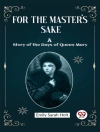In ‘Alphonsus, King of Aragon, ‘ Robert Greene presents a rich tapestry of intrigue and ambition set against the backdrop of Renaissance politics. This historical play delves into the complexities of power, exploring the personal and political machinations that define leadership. Greene’s deft use of blank verse coupled with vivid character development showcases the intense emotional landscapes of his figures, while also placing them within the larger context of Elizabethan drama, marked by its themes of rivalry and redemption. The intricate plot is woven with sharp dialogue that reflects the moral ambiguities of its time, revealing the tumultuous interplay between personal desires and the responsibilities of rule. Robert Greene, a prominent figure in Elizabethan literature, is known for his blend of fiction and drama, often drawing inspiration from his own tumultuous life experiences, including his encounters with the realities of courtly life and the world of theatre. His fascination with historical figures and their struggles for supremacy is evident in this work, prompting readers to consider the eternal relevance of ambition and the ethical dilemmas faced by leaders throughout history. ‘Alphonsus, King of Aragon’ is an essential read for those interested in the intersections of history, drama, and morality. Greene’s masterful storytelling invites readers to reflect on the timeless question of what it means to wield power responsibly, making this play not only a compelling narrative but also a profound commentary on human nature.
Sobre o autor
Robert Greene (1558–1592) was an English author, playwright, and poet, known for his prodigious output and colourful life during the late 16th century, part of the vibrant Elizabethan era of literature. He is remembered not only for his literary contributions but also for his purported tumultuous lifestyle, which reportedly involved various forms of excess. Greene earned a BA from St. John’s College, Cambridge in 1580, followed by an MA in 1583 from Clare College. Greene’s works demonstrate a profound knowledge of classical literature, indicative of an accomplished education. His writing is characterized by its wit, often directed at his contemporaries and imbuing his text with a satirical edge. ‘Alphonsus, King of Aragon’ is one such work that exemplifies Greene’s literary style, combining romantic plots with classical references. Despite its specific narrative, the play is recognized generally for its exploration of human themes such as ambition, power, and deceit, reflecting Greene’s broader interest in the moral psychology of his characters. Greene’s charm and influence on Elizabethan literature are undeniable, although his life and work were often shadowed by controversy, not least when he cautioned against an ‘upstart crow’, which many have interpreted as a reference to William Shakespeare. Greene’s contributions to literature remain a testament to the rich tapestry of Elizabethan playwriting and storytelling.












